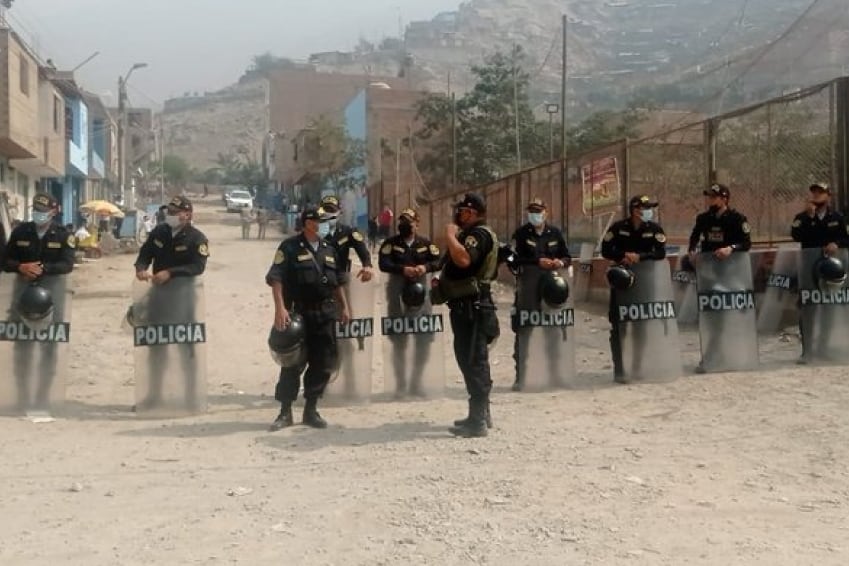
During the first eight months of his term, President Pedro Castillo has not had a good relationship with the national or international press. Although the long season of silence came to an end at the beginning of this year, the hostility with which the men and women of the press are treated continues to be repeated during the president's apparitions.
On the morning of 21 March, the head of state paid a visit to the initial institution 197 Child Jesus of Prague located in Lurigancho, Chosica. Although it was an event in a public institution, the journalists encountered a police barrier that prevented them from accessing Pedro Castillo. Consultations on questions about the Executive could not be formulated.

The Institute of Press and Society (IPYS) reported this fact through its social networks and its website where it stated “its rejection of the restrictions that imposes the security of the president each time he carries out his various activities, considering that they prevent the proper development of the coverage of the political source”. The rejection was supported by “Voices del Sur”, a conglomerate of 14 Latin American organizations that defend freedom of expression, of the press and access to information.
CONSTANT ROCES
After promising that he would have a better relationship with the press, President Castillo gave his first interview to the weekly newspaper Hildebrandt in its thirteen years; however, this meeting generated a column in which the journalist gave his views of the government and the figure of the president. “Peru does not deserve its president to disguise himself as a poor devil. Ignorance can move. Unworthiness only produces rejection,” Hildebrandt said in his weekly column.
“Castillo appeals to the people, but it turns out that part of the town has abandoned it and there are the figures of the polls and the screaming that is already heard in streets and squares. In any case, a couple of books would have been enough to let him know that a large part of the people worshiped Hitler,” he added. Added to this was the account of an impasse he had with one of the advisers of the Government Palace. “He asked me: 'Mr. Hildebrandt, you don't have state advertising, do you? ' My answer was, just in case, 'I don't have it and I don't want it'. So be careful,” he said about the moment he called “in very bad taste.”
However, the meeting that generated the most questions was the interview given to CNN in Spanish. Mexican journalist Fernando del Rincón put Pedro Castillo in trouble by asking him questions that sought to reveal his position on controversial issues. The president's refusal to point out who he considers to be president of Venezuela earned him several criticisms such as the revelation that at some point he asked for “Sea for Bolivia” during an event in that country.
Since the first months of his administration, several journalists have been victims of aggressions by State security, even lifting a reporter who approached Pedro Castillo to ask a question. The fact was condemned by the president, but it was repeated on other occasions. Recently, while Castillo was in Congress, supporters of his government physically assaulted reporters who were covering demonstrations in the vicinity of the Legislative Palace. Although the head of state regretted what happened again, his openness to the press has not shown any major changes.
KEEP READING
Últimas Noticias
Debanhi Escobar: they secured the motel where she was found lifeless in a cistern
Members of the Specialized Prosecutor's Office in Nuevo León secured the Nueva Castilla Motel as part of the investigations into the case

The oldest person in the world died at the age of 119
Kane Tanaka lived in Japan. She was born six months earlier than George Orwell, the same year that the Wright brothers first flew, and Marie Curie became the first woman to win a Nobel Prize

Macabre find in CDMX: they left a body bagged and tied in a taxi
The body was left in the back seats of the car. It was covered with black bags and tied with industrial tape
The eagles of America will face Manchester City in a duel of legends. Here are the details
The top Mexican football champion will play a match with Pep Guardiola's squad in the Lone Star Cup

Why is it good to bring dogs out to know the world when they are puppies
A so-called protection against the spread of diseases threatens the integral development of dogs




